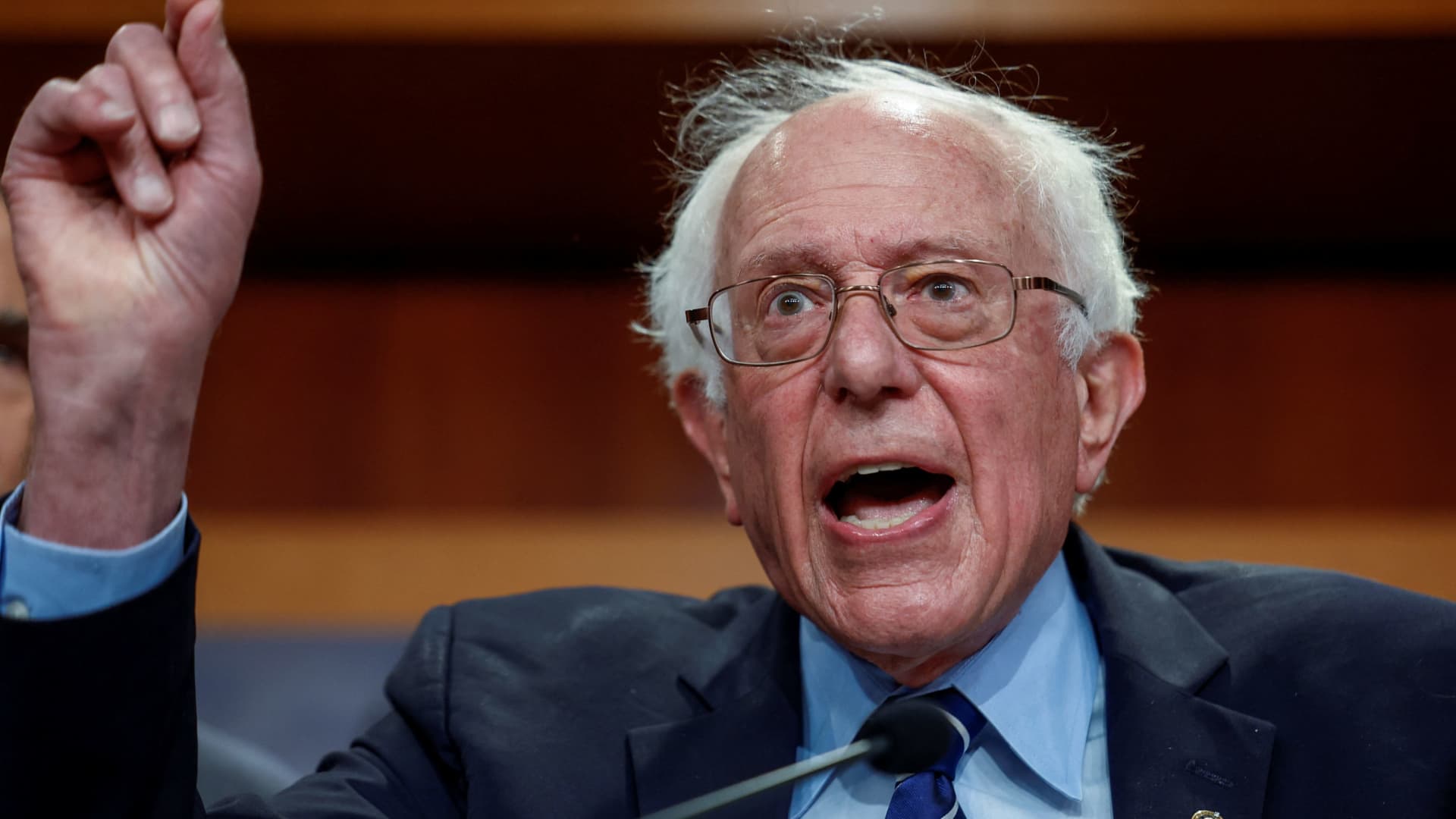U.S. Senator Bernie Sanders (I-VT) speaks at a press conference on Capitol Hill about 11 Senate Democrats who sent a letter to President Joe Biden urging him to invoke the 14th Amendment to avoid a catastrophic debt default, in Washington, May 18, 2023.
Evelyn Hockstein | Reuters
Sen. Bernie Sanders vowed to oppose President Joe Biden’s pick to lead the National Institutes of Health – and any other health nominee – until the administration delivers a plan to lower prescription drug prices.
“I will oppose all nominations until we have a very clear strategy on the part of the government … as to how we’re going to lower the outrageously high cost of prescription drugs,” Sanders said late Monday in an interview with The Washington Post.
Sanders, who chairs the Senate Health Committee, controls when his panel reviews nominees for the Department of Health and Human Services.
The Biden administration will not be able to confirm its NIH director pick, Dr. Monica Bertagnolli, or any other current or future health agency nominee without the support of the Vermont independent.
The administration announced its intent to nominate Bertagnolli, a cancer surgeon who leads the National Cancer Institute, last month.
Lawmakers, researchers and advocates have repeatedly warned that drug prices in the U.S. outpace those in other nations and ultimately harm Americans who need to access life-saving treatments.
Sanders, a frequent pharma critic, along with the committee’s Democratic majority issued a report Monday analyzing the cost of prescription drug prices that were developed with the help of NIH funding and research.
The report concluded that Americans consistently pay higher prices for NIH-backed drugs compared with people in other countries.
The average price of new treatments that NIH scientists helped invent over the past two decades is $111,000, according to the report. With the exception of one treatment, U.S. prices exceeded those in other G7 countries, the report added.
For example, a drug for severe mouth sores called Kepivance costs $19,000 in the U.S., according to the report. But the treatment, developed by biotech company Sobi, only costs $5,000 in Italy.
The report also argued that federal officials are missing opportunities to ensure that pharmaceutical companies set reasonable prices for new medicines that are funded in part by taxpayer support.
“The federal government should also stop giving away monopolies on public inventions,” the report said. It provided examples of how health officials appear to have “handed over taxpayer technology while obtaining little in return.”
This story originally appeared on CNBC


